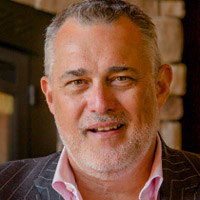How Each Presidential Candidate Plans to Handle Corporate Taxes

If you follow this blog then you know that corporate taxes are a regular topic discussed in this space. A couple weeks ago we shared some comments from Disney Chief Bob Iger regarding the country’s corporate tax policies. This is a topic that continues to get a lot of airtime in the media as the three candidates still running for president continue to push the issue.
One of the reasons this continues to be front and center is that income from corporate taxes keeps falling. While it still remains a huge source of revenue for the government, over the past several decades that revenue has been declining sharply. In fact, whereas in the 1950s corporate taxes accounted for 30 percent of the country’s tax revenue, in the year 2015 corporate taxes accounted for a mere 11 percent of the total tax base.
There are several reasons for the decline, including corporate tax breaks, a lower corporate tax rate, more profits coming overseas and many loopholes that allow corporations to cut their tax bills legally.
As mentioned, each of the three remaining candidates running for the nation’s top office have their own ideas on how to solve the problem and just as one would expect they differ greatly. In a nutshell, republican Donald Trump wants to cut the corporate tax rate down from 35 percent to 15 percent.
Hilary Clinton, on the other hand wants to close loopholes so corporations can’t avoid their taxes, which increase corporate tax revenues for the government substantially. At the same time she has not made any proposal to cut the corporate tax rate. Bernie Sanders wants to increase the corporate tax revenue by increasing the tax rate even higher and by taxing overseas profits, among other things.
Time will tell who wins the election, and when that person does, whether or not he or she will be able to implement his or her plan.
http://www.reuters.com/article/us-usa-election-taxes-idUSKCN0YS0C7
Noosheen Hashemi- Against All Odds
About Noosheen Hashemi Noosheen Hashemi is a business plan builder, angel investor, and advisor with a focus on disruptive ideas and platforms, Noosheen has more than three decades of experience building the leadership and execution capabilities of early stage companies to deliver growth and profitability on a global scale. As a private investor in…
Think Big, Act Bigger | Jeffrey Hayzlett
About Jeffrey Hayzlett Jeffrey Hayzlett is a global business celebrity and former Fortune 100 c-suite executive. From small business to international corporations, he puts his creativity and extraordinary entrepreneurial skills into play, launching ventures blending his leadership perspectives, insights into professional development, mass marketing prowess and affinity for social media. Jeffrey is a leading business…
Replacing The Rainmaker | Ian Tonks
About Ian Tonks Ian Tonks is a business development consultant and author of the book “Replacing the Rainmaker.” He provides coaching and consulting services to accounting firms, helping them implement practices to ensure their long-term business development success. Interview Transcript: Alan Welcome back. I’m here today with Ian Tonks. He’s author of the book…




